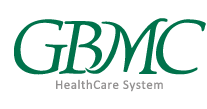A Study of Belinostat + Carboplatin or Paclitaxel or Both in Patients With Ovarian Cancer in Need of Relapse Treatment
| Status: | Completed |
|---|---|
| Conditions: | Ovarian Cancer, Cancer, Cancer, Cancer, Cancer, Cancer, Cancer, Bladder Cancer |
| Therapuetic Areas: | Oncology |
| Healthy: | No |
| Age Range: | 18 - Any |
| Updated: | 4/21/2016 |
| Start Date: | August 2005 |
| End Date: | February 2009 |
A Phase I/II Safety, Pharmacodynamic, and Pharmacokinetic Study of Intravenously Administered PXD101 Plus Carboplatin or Paclitaxel or Both in Patients With Advanced Solid Tumours
The study seeks to assess the safety, pharmacodynamics, pharmacokinetics and efficacy of
belinostat (PXD101) administered in combination with carboplatin or paclitaxel or both in
patients with solid tumours followed by maximum tolerated dose (MTD) expansion (phase II) in
ovarian and bladder cancer patients
The clinical trial is now in the MTD (phase II) portion of the study enrolling bladder
cancer patients. Enrollment of ovarian patients is complete.
belinostat (PXD101) administered in combination with carboplatin or paclitaxel or both in
patients with solid tumours followed by maximum tolerated dose (MTD) expansion (phase II) in
ovarian and bladder cancer patients
The clinical trial is now in the MTD (phase II) portion of the study enrolling bladder
cancer patients. Enrollment of ovarian patients is complete.
MTD Expansion I(Phase II): A total of 18-32 patients with epithelial ovarian, primary
peritoneal, fallopian tube or mixed mullerian tumours of ovarian origin, in need of relapse
treatment will be enrolled.
MTD Expansion II (phase II): A total of 15 patients with urothelial (transitional cell)
carcinoma of the bladder will be enrolled.
peritoneal, fallopian tube or mixed mullerian tumours of ovarian origin, in need of relapse
treatment will be enrolled.
MTD Expansion II (phase II): A total of 15 patients with urothelial (transitional cell)
carcinoma of the bladder will be enrolled.
Inclusion Criteria:
1. Signed consent of an IRB (Institutional Review Board) approved consent form.
2. Patients with histologically confirmed solid carcinomas, for which there is no known
curative therapy.
3. Performance status (Eastern Cooperative Oncology Group [ECOG]) ≤ 2.
4. Life expectancy of at least 3 months.
5. Age ≥ 18 years.
6. Acceptable liver, renal and bone marrow function including the following:
1. Bilirubin ≤ 1.5 times ULN (upper limit of normal).
2. AST/SGOT ([Aspartate Amino Transferase/Serum glutamic oxaloacetic
transaminase]), ALT/SGPT ([Alanine Amino Transferase/Serum glutamic pyruvic
transaminase]) and alkaline phosphatase ≤ 3 times ULN (if liver metastases are
present, then ≤ 5 x ULN is allowed).
3. Measured EDTA ([ethylenediaminetetraacetic acid]) renal clearance ≥ 45 mL/min
(EU sites). At the US sites calculated creatinine clearance ≥ 45 mL/min using
the Jeliffe formula.
4. Leukocytes > 2.5×109/L, neutrophils > 1.0x109/L, platelets > 100×109/L.
5. Hemoglobin > 9.0 g/dL or > 5.6 mmol/L.
7. Acceptable coagulation status: PT-INR([prothrombin-International Normalized
Ratio])/APTT([Activated Partial Thromboplastin Time]) ≤ 1.5 × ULN or in the
therapeutic range if on anticoagulation therapy
8. A negative pregnancy test for women of childbearing potential. For men and women of
child-producing potential, the use of effective contraceptive methods during the
study is required.
9. Serum potassium within normal range (added in protocol Global version 3.0) Additional
Eligibility Criteria at the MTD Expansion only
10. Patients with epithelial ovarian cancer in need of relapse treatment. Changed with
protocol Global version 3 to: Patients with epithelial ovarian, primary peritoneal,
fallopian tube or mixed mullerian tumors of ovarian origin in need of relapse
treatment.
Or
11. Patients with urothelial (transitional cell) carcinoma of the bladder who have
received up to a maximum of 3 previous chemotherapy regimens in the advanced disease
setting (neoadjuvant chemotherapy is not included in the total of chemotherapy
regimens), applies only for patients enrolled in Part D.
12. At least one uni-dimensional measurable lesion. Lesions must be measured by CT scan
or MRI according to Response Evaluation Criteria in Solid Tumors (RECIST)(Added with
protocol Global version 4).
Eligibility Criteria for the Site Specific Amendment (Part C) - Advanced solid tumors
only
13. Patients with refractory solid tumors other than ovarian cancer.
Exclusion Criteria:
1. Treatment with investigational agents within the last 4 weeks.
2. Prior anticancer therapy within the last 3 weeks of study dosing including
chemotherapy, radiotherapy, endocrine therapy, immunotherapy or use of other
investigational agents. Changed with protocol Global version 1; prior anticancer
therapy within the last 3 weeks of study dosing including chemotherapy, radiotherapy,
endocrine therapy or immunotherapy.
3. Co-existing active infection or any co-existing medical condition likely to interfere
with study procedures, including significant cardiovascular disease (New York Heart
Association Class III or IV cardiac disease), myocardial infarction within the past 6
months, unstable angina, congestive heart failure requiring therapy, unstable
arrhythmia or a need for anti-arrhythmic therapy, or evidence of ischemia on ECG,
marked baseline prolongation of QT/QTc interval, e.g., repeated demonstration of a
QTc interval ([corrected QT interval ]) > 500 msec; Long QT Syndrome; the required
use of concomitant medication on belinostat infusion days that may cause Torsade de
Pointes (see Appendix 1.1, protocol EU version 1.0, Appendix A - Appendix 16.1.1).
4. Altered mental status precluding understanding of the informed consent process and/or
completion of the necessary studies.
5. History of a concurrent second malignancy. Changed with Site Specific Amendment (Part
D) to: History of a concurrent second malignancy. In patients with urothelial
(transitional cell) carcinoma of the bladder an exception is that an incidental
finding of localized prostate cancer at the time of radical cystectomy does not
preclude inclusion in the study. In such cases a patient will be eligible for
inclusion if the Gleason score is ≤6 and the Prostate Specific Antigen (PSA) <10
ng/mL (if the patient would be on hormonal treatment the PSA must be
undetectable).Only applied to patients included in this site specific amendment.
6. History of hypersensitivity to either platinum or paclitaxel that is unable to be
desensitized (added with protocol Global version 4).
7. More than 3 prior lines of chemotherapy given for metastatic disease (added with
protocol Global version 1).
8. Bowel obstruction or impending bowel obstruction.
9. Known HIV positivity.
10. Any Grade 2 or above drug-related neurotoxicity, following recovery.
11. Changed with protocol Global version 1 to: Any existing Grade 2 or above drug related
neurotoxicity due to prior treatment with agents causing neurotoxicity.
Additional exclusion criteria at the MTD expansion only
12. Mixed mullerian tumors of intra-uterine origin, added with protocol Global version 3.
We found this trial at
8
sites
Click here to add this to my saved trials
Greater Baltimore Medical Center The 255-bed medical center (acute and sub-acute care) is located on...
Click here to add this to my saved trials
Massachusetts General Hospital Cancer Center An integral part of one of the world
Click here to add this to my saved trials
Click here to add this to my saved trials
Click here to add this to my saved trials
Click here to add this to my saved trials
Click here to add this to my saved trials
101 Dudley St
Providence, Rhode Island 02905
Providence, Rhode Island 02905
(401) 274-1100

Women and Infants Hospital of Rhode Island Women & Infants Hospital of Rhode Island, a...
Click here to add this to my saved trials

